Please know that all scores and recordings are protected by Creative Commons License. For further information regarding royalties and permissions, please contact the composer.
Song Cycles: A Prelude.
From the beginning of our collaboration, Jason Charnesky and I were writing multi-movement works. What would generally start out as a simple, straightforward idea on my part would be developed into something bigger, more extended, and quite comprehensive.
And so it was with our very first works together. When my friend Jan Wilson, a wonderful mezzo-soprano with a golden voice, was planning her New York debut at Weill Recital Hall - the chamber music venue at Carnegie Hall in New York City – she asked me for “a few arrangements - perhaps some folksongs - for the end of the recital.” Of course I was pleased and quickly accepted. But as I thought about the proposal, I realized this was both hers and my New York debuts, and this was Carnegie Hall. So I started looking for texts - and then quickly turned to my longtime acquaintance and partner in all things artistic, Jason, to ask him if he would write some texts for the . . . . Songs for the End of the Recital.
You can read Jason’s eloquent and informative introduction to the Songs below. But these “few” arrangements became a major song cycle - and one that laid out the path of all of our future collaborations: the primacy of text and idea, Words and Music. And beginning with that first collaboration I have been very fortunate to work with a writer who provides texts that inspire me to write my best music. A grander and more useful gift no composer could ever hope to receive.
So for many reasons, I give Songs for the End of the Recital pride of place on this webpage. It is seminal to my entire song cycle output: Contemporary, engaging and humorous.
I hope you will enjoy exploring the variety and musical and emotional range of songs these cycles contain. Happy exploring!
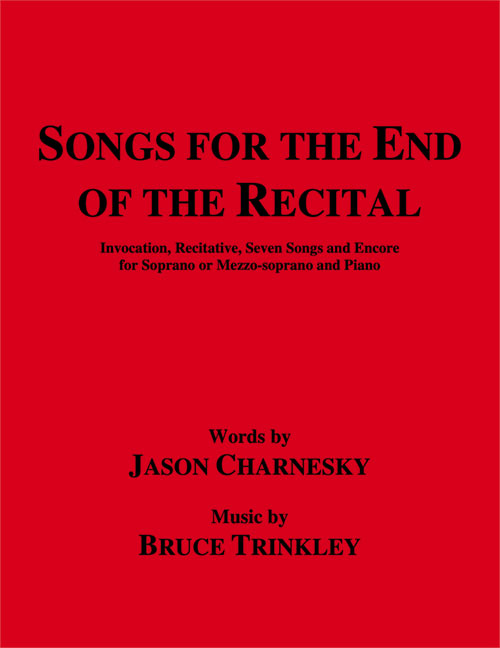
Songs for the End of the Recital
Invocation, Recitative, Seven Songs and Encore for Soprano or Mezzo-soprano and Piano
Text by Jason Charnesky
Like any touchy diva, the art song is always complaining of its health, always seeming about to die, and always finding newer and more exciting ways to live. The cycle is modeled on the many song forms that typically close a recital: French chanson, American ballad, German lied, Spanish flamenco, Russian letter aria, and Minimalist count-off. Taken together the cycle tells its own story about the struggle of Art, and concludes beautifully and wittily with a composed encore!
Duration: 20 minutes
Commission and Premiere:
Jan Wilson, mezzo-soprano; Robert Long, piano, for her New York recital debut at Weill Recital Hall, April 30, 1994. Click on the songs to listen to the recordings by Jan and Robert.
2. Chanson extrême
3. Memo
4. Ballad
5. Minims
6. Lied
7. Cante flamenco
8. Letter Aria
9. Encore
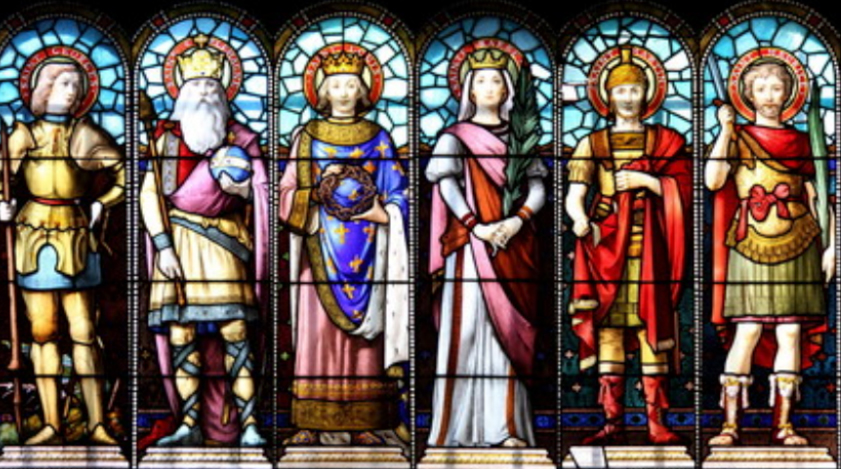
A Communion of Saints
Eight songs for Voice and Piano
Text by Jason Charnesky
A universal celebration with reverence and humor of saints of all stripes.
Duration: 15 minutes
Commissioned and Premiere by Suzanne Roy and Steven Smith at Penn State Faculty Composers Concert, January 26, 1996. Click on the songs to listen to the recording by Suzanne and Steven.
2. The Shepherd's Tale
3. Mary Magdalene Remembers Ascension Sunday
4. Francis of Assisi Relates a Strange Tale
5. A Couple of Saints
6. Saint Jerome Considers His Decorum
7. Saint Teresa Recites a Litany for the Feast of the Assumption
8. Saint Agatha's Last Prayer
They are of us and come from us
then go through us just to show us
all we know as the hard world of
sheer fact is too apt to be shattered by love.
3. Mary Magdalene Remembers Ascension Thursday
Clouds tossed around like graveclothes
That morning, spring mud held our footing
Where our ankles sank.
He laughed, he laughed
Lighter than life, taught us dance
Barely touching the tips of grass.
INTERLUDE I: The Influence of Place.
The songs I have written express my journey as a composer – but the places I have journeyed to have influenced what I have written. I have been fortunate to enjoy composer residencies at artist colonies around the world, starting with a half dozen during my sabbatical year in 1993-1994. In a very important sense, Auld Reikie and The Winchester Widow, written half a world apart and expressing worlds that dissimilar, are both expressions of place.
When I passed through Edinburgh on my way to a residency at the magnificent old Hospitalfield House in Arbroath, I happened upon the Scottish Poetry Library, where I bought a volume of writings by the great Scottish poet Robert Fergusson. And during a later stay in Arbroath I attended the Edinburgh Festival production of the complete works of John Millington Synge by an Irish theatre troupe DruidSynge, That led to my cycle on poems of Synge, whose title always makes at least me smile: Seven Synge Songs. The great Scottish baronial castle of Hospitalfield inspired me, just as it did Sir Walter Scott in writing The Antiquary.
And some time later, the Winchester House in San Jose, California inspired Jason and me - especially after a singer friend, Mary Kay McGarvey, requested a “ghost” song for a program she was planning for Halloween. That simple invitation led to a monodrama that has been very popular with singers looking for a dramatic piece to program - and willing to find and feature the “musical saw.” Mary Kay suggested we collaborate with Natalia Paruz, known throughout New York, especially on the subway, as “The Saw Lady.” Her website even has a Manual for Composers on how to write for the musical saw: https://sawlady.com/. Thus place, history, and even an instrument were inspiration.
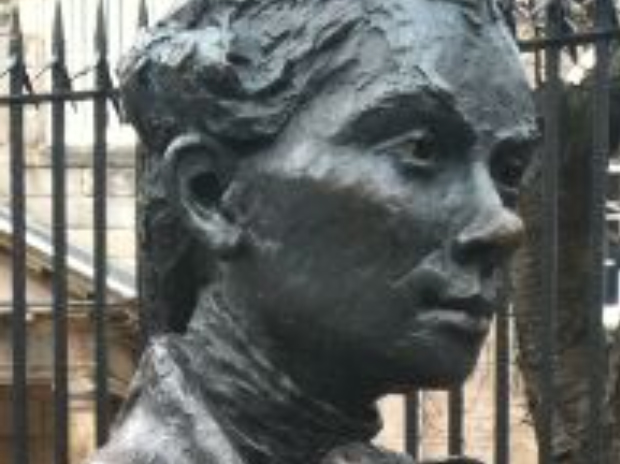
Auld Reikie
Medium Voice and Piano (also for High Voice and Piano)
Poems of
Robert Fergusson (1750-1774) Original Version for SATB Voices and Piano
Settings of the great Scottish poet as he observes life and death as well as love and humor in 18th Century Edinburgh.
Duration: 10 minutes
Premiere: The Gregg Smith Singers performed the original choral version, conducted by the composer at St. Peter’s Church at the Citicorp Center, NYC. The recording is by the legendary choral ensemble.
2. On the Music Bells Playing
3. The Lee-Rigg
4. The Author’s Life
5. On Seeing a Lady Paint Herself
Read notes. Read Poems. Download score. Listen to the Gregg Smith Singers.
Our council men are cheerful;
To mirth they now devote each toast,
And bells fill every ear full.
When man's condemned to suffer death
For his unlicensed crimes,
Instead of psalms they quit their breath
To merrymaking chimes.
3. The Lee-Rigg
Will ye gang owr the lee-rigg,
My ain kind deary O!
And cuddle there sae kindly
Wi' me, my kind deary O?
At thorniedike and birkentree
We'll daff, and ne'er be weary O;
They'll scug ill een frae you and me,
Mine ain kind deary O.

Emily Grosholz Songs
Six Songs for Voice and Piano Poems by the Poet-Philosopher
Emily Grosholz
Emily’s beautiful and passionate poems figured prominently in Mountain Laurels: A Choral Symphony in settings for both solo voice and chorus with chamber ensemble. Here, in settings for voice and piano, her poetry shines exquisitely and is treated as the gems that they are.
Duration: 15 minutes
Premiere and Recording by Amanda Silliker, mezzo-soprano, and Steven Smith, piano.
Click on the songs to listen to Amanda and Steven on Songs of Two Bellevilles CD.
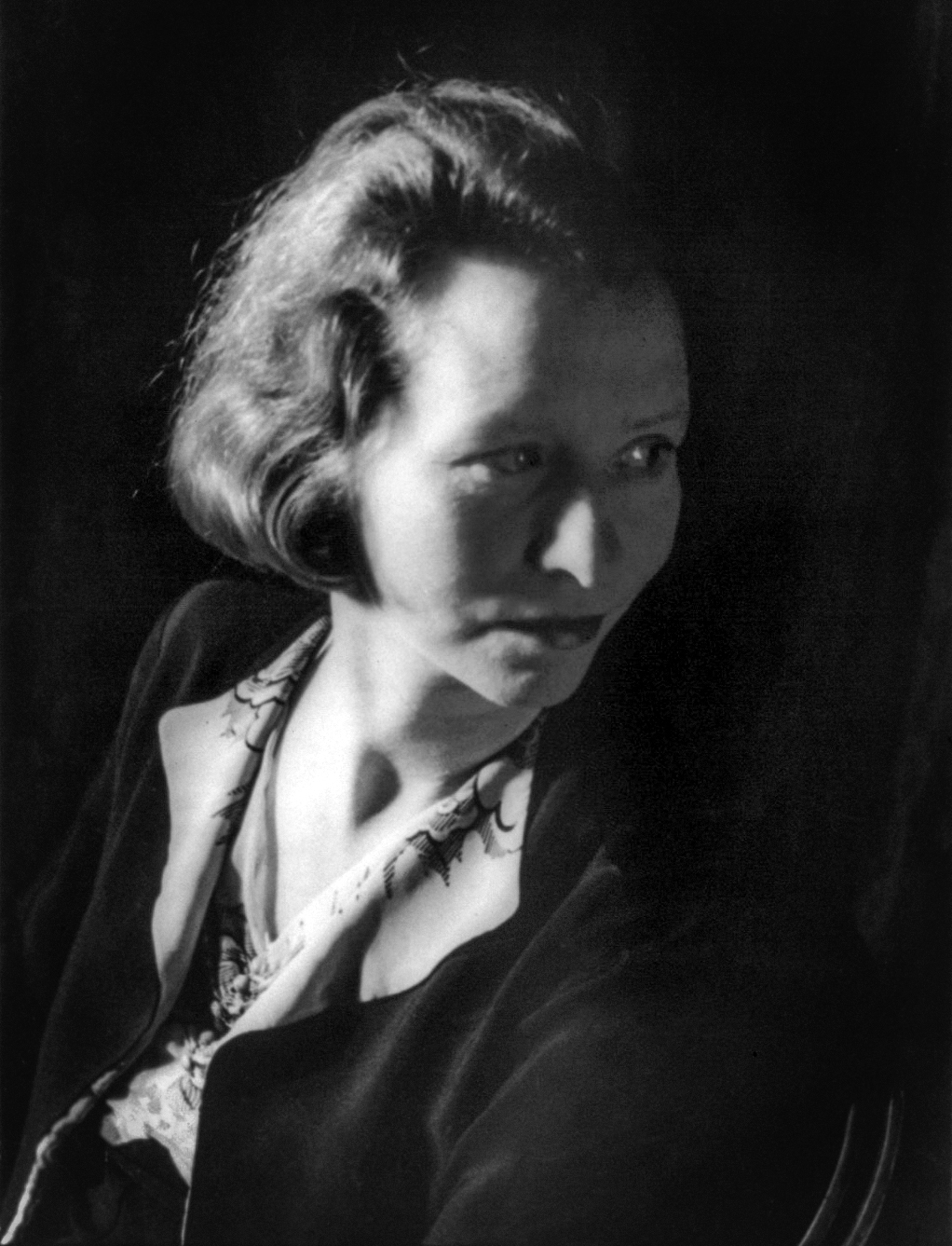
(1892-1950)
Millay Songs
Five Songs for Voice and Piano
Settings of poems by the Pulitzer-prize winning American lyric poet, Edna St. Vincent Millay (1892-1950). These settings, like Millay’s poems, are lyrical, evocative and dramatic.
Duration: 8 minutes
Premiere by various singers.
2. Second Fig Listen: midi
3. Elegy Before Death Listen: midi
4. Lament Listen: midi
5. Winter Night Listen: midi
Read notes and poems. Download score
My candle burns at both ends;
It will not last the night;
But ah, my foes, and oh, my friends –
It gives a lovely light!
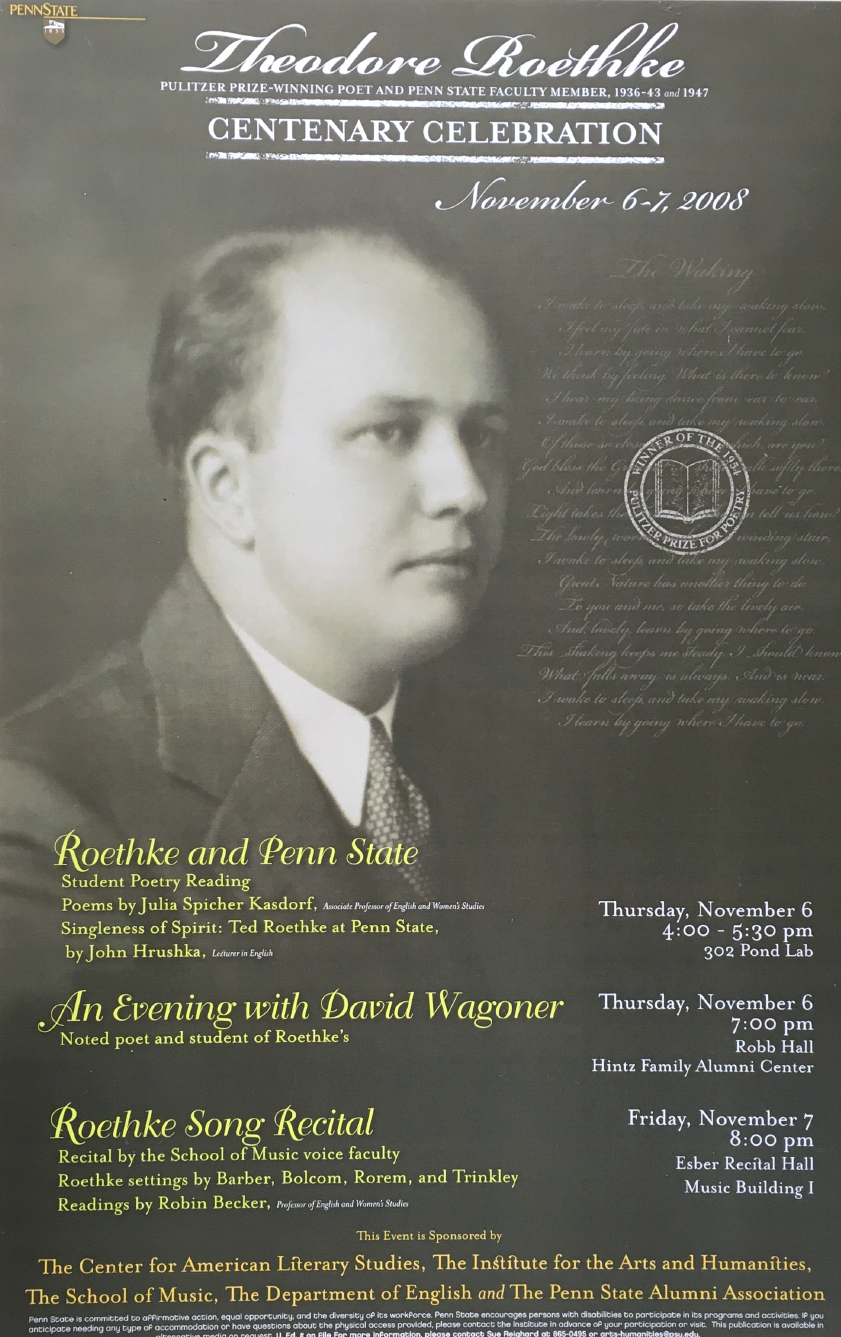
Open House: Roethke Cantata
Seven Songs for Solo Voice or Vocal Quartet and Piano
Settings of poems from Open House, the first book of poetry of Theodore Roethke (1908-1963), written and published while he was teaching at Penn State. The settings were originally for solo voice, choral ensembles and even children’s chorus and were included in Mountain Laurels in 1996. The last song, The Summons, is a setting of the unpublished Phi Beta Kappa poem that Roethke was commissioned to write in 1939 which powerfully predicted what was going to happen in Europe in the next decade. The seven individual settings were then compiled into a song cycle and performed as part of Penn State’s Theodore Roethke Centenary Celebration in 2008. The songs were written for solo voice, but on the recordings they are performed by a vocal quartet. Click on the song title to listen to Penn State School of Music singers.
2. Mid-country Blow Score.
3. The Bat Score.
4. Vernal Sentiment Score.
5. Night Journey Score.
6. Idyll Score.
7. The Summons Score.
Read poems.
INTERLUDE II: Writing for Friends.
Often a song arises from the request of a friend. An extended song resulted from a chance suggestion by Kathy Cowdrick, a longtime friend from her undergraduate days at Penn State. I used to feature her as often as I could as a guest soloist with the Penn State Glee Club. Years later she returned to campus to receive an Alumni Achievement Award honoring her international career in opera. Jason and I were sitting with her at the celebration dinner when she - spontaneously and impulsively - asked us for a “vegetable song.” She was planning a recital to be based on food songs outlining the courses of a dinner, and although she had “appetizer” and “main course” repertory, she needed a “vegetable song.” Jason responded with a multi-vegetable recipe song – Ratatouille. I was thrilled to be able to write for her “delicious” world-class mezzo voice, and greatly enjoyed having the song premiered at Kilbourn Hall at the venerable Eastman School of Music, where Kathy teaches voice.

Ratatouille
Voice and Piano
A humorous and lyrical setting of Jason Charnesky’s text extolling the virtues of a favorite French recipe while also expressing the singer’s delight in the ingredients. Although not a song cycle but rather an extended song, it is very effective and entertaining as a music theatre piece.
Duration: 8 minutes
Commissioned and Premiered by Kathryn Cowdrick, mezzo-soprano, Eastman School of Music.
Read poem. Download score. Listen to Kathryn Cowdrick.
Ratatouille . . . ratatouille . . .
Just to say it is to find yourself in France!
Some quaint café
On the corner
Of a town no tourist has ever found
In sunny Provence. . . .
As with all pleasure
As with all of the good things in life
As with love
As with art
As with song
You must
Adapt accordingly for your own needs.
Ratatouille . . . ratatouille!

Robert Frost Songs
Voice and Piano
Evocative settings of poems by poet Robert Frost (1874-1963) featuring his paeans to Nature and Philosophy.
Duration: 10 minutes
2. To the Thawing Wind Listen: midi
3. The Rose Family Listen: midi
4. Pan With Us Listen: midi
5. The Flood Listen: midi
Read notes and poems. Download score
'The rose is a rose,
And was always a rose.
But the theory now goes
That the apple's a rose,
And the pear is, and so's
The plum, I suppose.
The dear only knows
What will next prove a rose.
You, of course, are a rose –
But were always a rose.
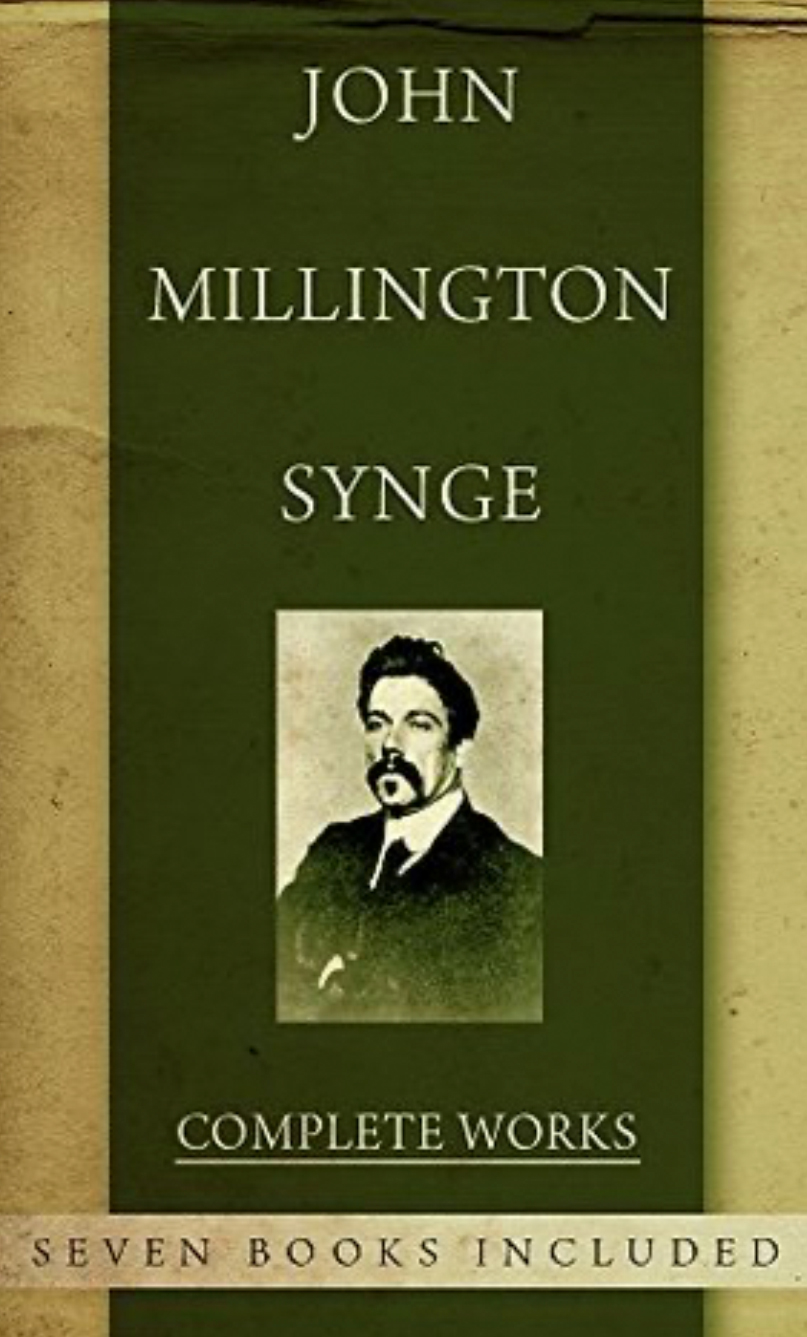
Seven Synge Songs
Voice and Piano
Seven poems of the great Irish dramatist John Millington Synge (1871-1909)
COMPOSER’S NOTE
Seven Synge Songs was composed during a residency at the Patrick Allan-Fraser of Hospitalfield Trust in Arbroath, Angus, Scotland in September 2005. The settings were inspired by the brilliant production of the complete plays of John Millington Synge by DruidSynge, directed by Garry Hynes, at the Edinburgh International Festival in August 2005. The poems are intensely autobiographical, alluding to Synge’s stay in Paris as an impoverished writer, his love affair with a young woman in the west of Ireland, and his reaction to criticism of his major work, The Playboy of the Western World. These lyrics also present the themes that illuminate all of Synge’s work: his distrust of priesthood and organized religion, his passion for the beauty of women, and his contempt for the fashionable critics of his day. And always there is the trenchant humor that heckles even as it is haunted by death. The cycle is dedicated to Richard Kennedy with gratitude and affection.
Duration: 8 minutes
Premiere:
Richard Kennedy, tenor. Click on song titles to listen to Richard.
2. Epitaph (After reading Ronsard’s lines from Rabelais)
3. Dread
4. In May
5. Winter (With little money in a great city)
6. The Curse (To a sister of an enemy of the author’s who disapproved of ‘The Playboy’)
7. Epitaph
Read the Notes and Poems. Download the score.
See also: Christy’s Monologue from Synge’s Playboy of the Western World on Solo Songs page.
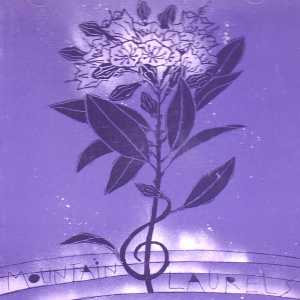
The Sylvan Cycle
Five songs for Voice and Piano
Drawn from the composer’s choral symphony Mountain Laurels, and adapted for solo voice, the texts powerfully yet lyrically depict the natural world and its impact on our lives.
Duration: 11 minutes
Premiere:
Richard Kennedy, tenor. Click on song titles to listen to Richard.
2. Before You Inhabit Another Star Poem by Joseph Grucci
3. Lovely October Poem by Joseph Grucci
4. Elm Trees Poem by Emily Grosholz
5. The Fire Elms Poem by Jason Charnesky
INTERLUDE III: Finding Tennessee
I don’t remember what prompted me to take the book out of the library, but over the course of several years I had renewed the volume some 40 times. This indicates two things: I was being exceptionally sluggish in exploring The Collected Poems of Tennessee Williams; and this book was not being sought out by patrons at Penn State’s Pattee Library!
So during another composer residency at Dorland Mountain Arts Colony in Temecula, CA (my favorite creative haunt for the past quarter-century) I took the volume along with me yet again. But this time I had no other pressing or urgent projects, and I took the time to read and consider the poems, selecting some two dozen to consider, and set to music.
I also was taken with a quote in the introduction that the editors included from the Williams papers at Columbia. It was his candid and heartfelt rejoinder to his readers who had taken the time to write to the author and to which he had failed to reply. I set the simple prose piece to music - but was unable to decide if it should open my cycle of songs or should be the close. An artist friend at Dorland suggested that I use it as both opening and closing - and that was, I believe, the proper choice.
It was only after I had finished the songs that, by chance, I discovered that this edition had hidden in the back cover a CD recording of Tennessee Williams himself reading 9 of his poems – four of which I had chosen to set to music! With some trepidation I dared listen to the droll master – hoping that his readings would not contradict my own settings. But no – I think Tennessee would certainly not have objected to my “readings” of his poems – and might have enjoyed them – especially our similar takes on the two blues that he included in the volume and the CD. It was a great delight to become familiar with the poet’s spoken interpretations.

Tennessee Williams Songs
Twelve Songs for Voice and Piano or Voice and String Quartet
Ballads, blues and dances by playwright Tennessee Williams (1911-1983) - funny poignant and inspiring. Complement with composer-novelist Paul Bowles’ Blue Mountain Ballads.
Duration: 20 minutes
Premiere of string quartet version: Rachel Copeland, soprano; Raymond Sage, baritone; Helen Manfull, Charles Dumas, readers; String Quartet: James Lyon, Joanne Feldman, violins; Timothy Deighton, viola; Carol Lyon, violoncello.
2. We Have Not Long To Love
3. Youth Must Be Wanton
4. Cried the Fox
5. Kitchen Door Blues
6. The Ice-Blue Wind
7. Temples to the Red Earth Shook
8. Little Horse
9. They That Come Late To the Dance
10. Gold Tooth Blues
11. Why Do I Want To Go Away
12. Valediction
Watch the Premiere performance at the Penn State School of Music, December 3, 2021.
Listen to piano-vocal version sung by Carl Ratner baritone. Part One. Part Two.
Read the notes and poems. Download the piano-vocal score. For string quartet score and parts, contact the composer.

Raymond Carver Songs
Voice and Piano
The stark honesty that made Raymond Carver (1938-1988) a great short story writer is also present in his poetry, and with humor and lyric strength. The first song is a love poem to Tess Gallagher, his longtime companion. The second is a celebration of life on Puget Sound with his many friends, including Tess.
Duration: 5 minutes
Premiere: Norman Spivey, baritone, Penn State 2001.
Read the poems.
Cool summer nights.
Windows open.
Lamps burning.
Fruit in the bowl.
And your head on my shoulder.
These the happiest moments in the day. . . .
My boat is being made to order. . . . .
We'll go out into the sunny harbor and have fun, that's the idea.
Just have a good time all around. Not thinking
about this or that or getting ahead or falling behind.
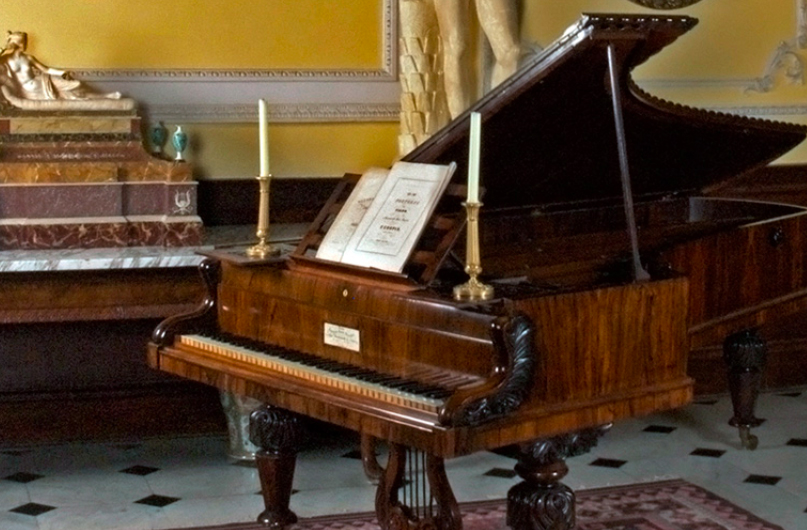
INTERLUDE IV: Inspired by Pianos.
Composers are often inspired by the instruments they get to write for. I have been fortunate that a couple of pianos have been my inspiration. There was a 19th century Broadwood piano in the elegant drawing room at Hospitalfield in Scotland that was reputed to have been just one serial number away from one that Chopin owned. Although the instrument was never going to see concert days again, it did have the most beautiful and resonant baritone-tenor range I have ever heard. And one could appreciate the sound that must have inspired Chopin – and Beethoven as well – to write some of their most beautiful melodies in that particular register. I found myself favoring that particular range in many of the accompaniments I wrote to songs there in that drawing room on that piano.
Another half world away, in the Great Smoky Mountains of northeastern Georgia, in a hollow with a stream, there was a magnificent old baby grand piano in the composer’s Garden Studio at The Hambidge Center in Rabun Gap. It was inspiring to me as I worked on a set of African American spirituals, arrangements for solo voice and for chorus. That beat up old Steinway with its twangy sound was perfect for this repertory. And when, several years later, I had another residency there in Rabun Gap, I was looking forward to working with that old friend again, but was presented with what I thought was a brand new, gleaming piece of elegant furniture there in Garden Studio. When I expressed my disappointment to the staff, I was both dismayed and exhilarated to learn that a donor had financed the complete renovation and refinishing of my old friend, the twangy old country instrument! I was glad to have had the dilapidated piano to inspire me for the spiritual settings. Still, I must add that the bright shiny new musical object greatly aided composing the piano parts to my cycle of Sidney Lanier Songs, settings of poems by the great Georgia poet Sidney Lanier – who in the 19th century had lived not far away.

The Hambidge Spirituals
Voice and Piano
Nine Traditional Spirituals for concert or sacred use. The Hambidge Spirituals is dedicated to Frederick Kennedy with gratitude and admiration for the elegant and beautiful manner in which he sings this repertory.
Duration: 20 minutes
Premiere: Selections from the cycle sung by Frederick Kennedy, tenor, at Tennessee Technical University.
Click on titles to listen to midi.
I Want To Be Ready
I Want Jesus to Walk with Me
My Soul’s Been Anchored in the Lord
Lord I Want More Religion
Trampin’
Weary Traveler
Wade in the Water
Soon Ah Will Be Done
Ride On, King Jesus
Download score.
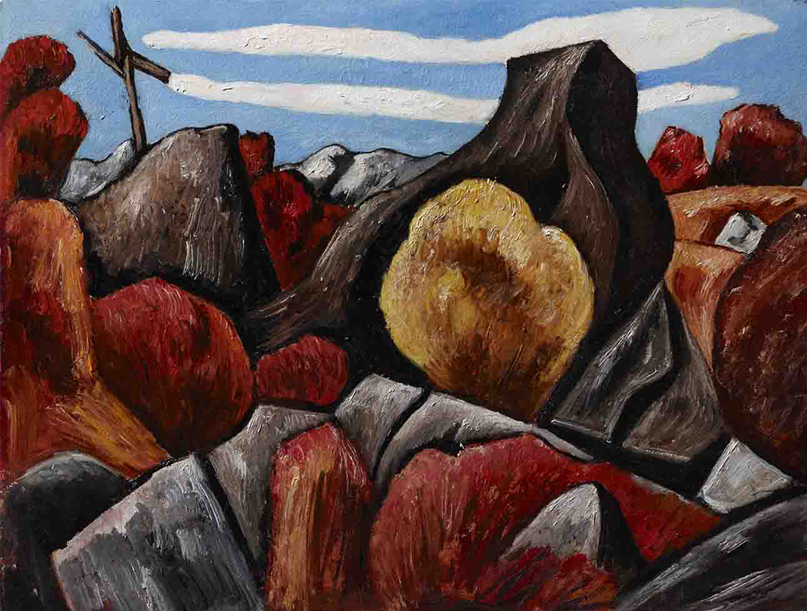
Marsden Hartley Songs
Voice and Violoncello
American painter Marsden Hartley (1877-1943) was also a poet and wrote about the same images, people and landscapes that inspired his paintings. His painting Dogtown hangs in the Palmer Museum of Art at Penn State. (Note from the composer to singers and cellists: Please consider performing these songs in front of a Hartley painting at your nearest museum of American art!)
Commission and Premiere: Meredith Mecum, soprano, and Justin Daugherty, violoncello
Click on the titles to listen to Meredith and Justin perform the songs.
2. Courage for Lost Poems
3. Fisherman’s Last Supper
4. Gay World
5. When It Is Time
Read notes. Read poems. Download score.
Lost poems live a better
life, maybe,
than when or if they come to print.
Leaves fall and no one wonders
what they do at all,
but they alone are wise
with their explicit premises,
and if a given rhythm ends
a something wonderfully else begins;
if poems lost could bear the
same profound import
as leaves when wind is done with them,
they would but do a better job
possibly than if they were cloaked with glory.
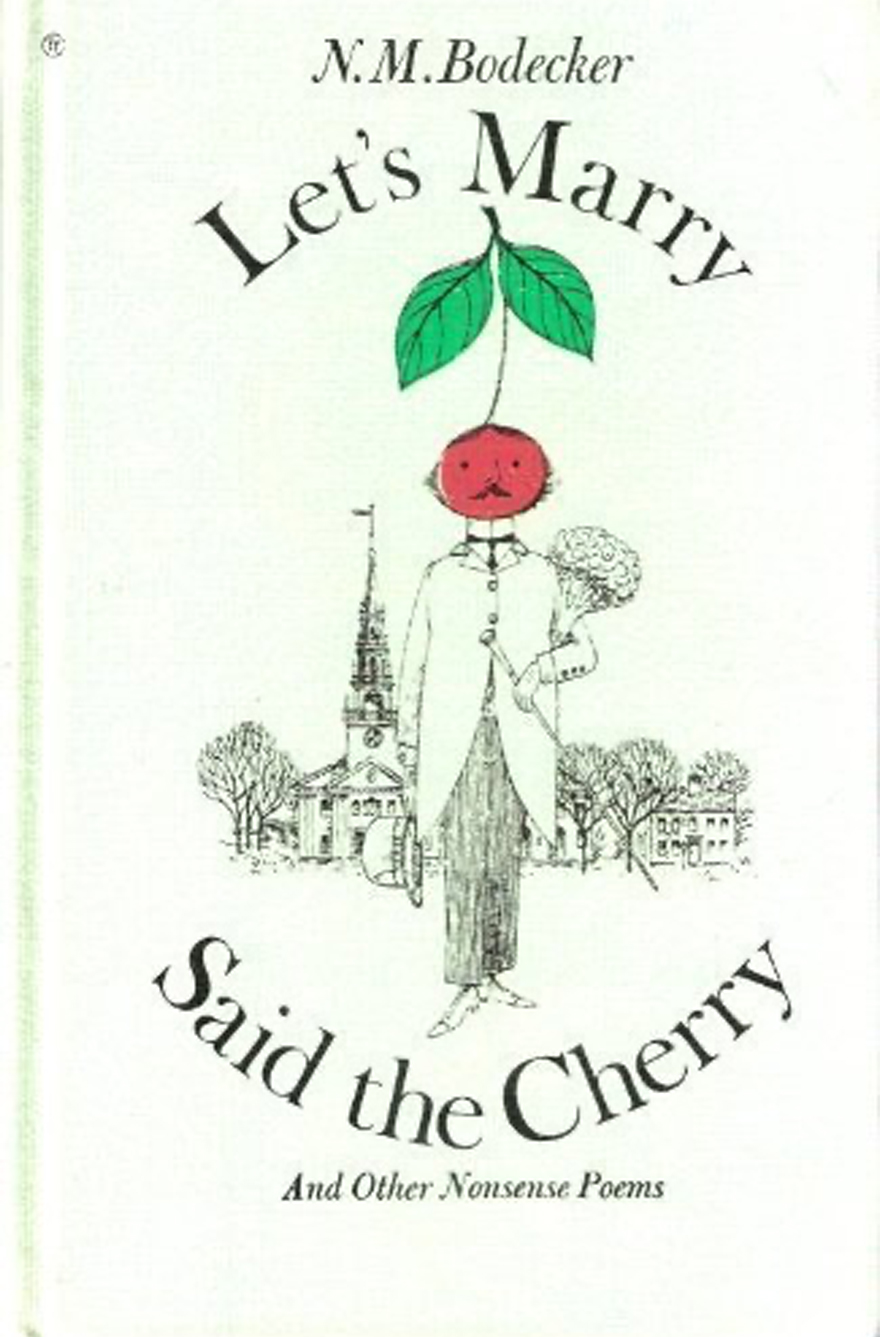
Let’s Marry Said the Cherry
Voice and Piano. Poems by
Niels Mogens Bodecker (1922-1988)
James White, a Penn State colleague who is also a fine baritone, read these poems from Let’s Marry Said the Cherry to his children and suggested setting them to music. He now sings them to his grandchildren who listen to the poems and the songs with delight and fascination. They will delight children of all ages.
Click on the song titles to listen to midi.
2. The Island of Yarrow/The Island of Yorrick
3. John
4. The Lark in Sark/The Geese in Greece
5. Mr. Slatter
6. Perfect Arthur
7. Up and Down
8. Mr. ‘Gator
9. Mr. Melter
10. Getting Together
11. Let’s Marry Said the Cherry
Duration: 20 minutes
Commission and Premiere: James White, baritone
Download score.
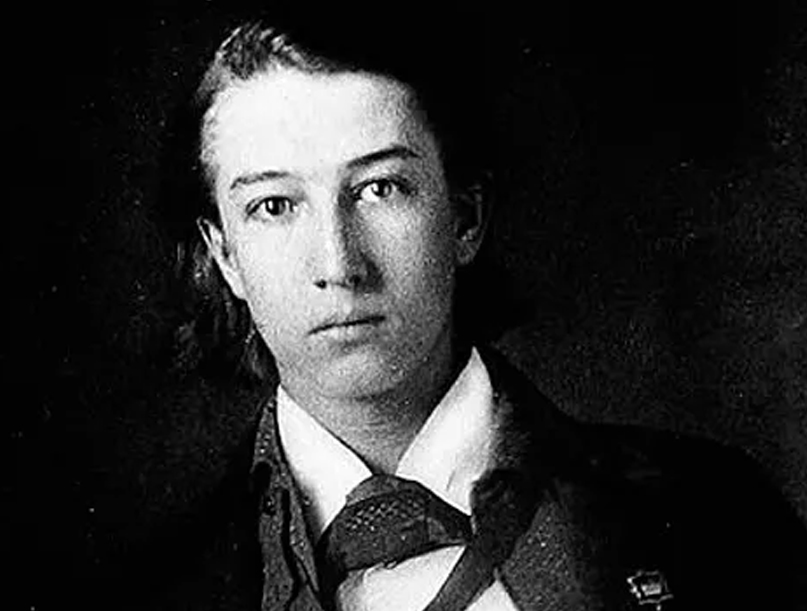
Sidney Lanier Songs
Medium Low or Medium High Voice and Piano
Inspirational songs with text by the 19th Century Georgia poet Sidney Lanier (1842-1881), who loved music – and was flutist in the Peabody Orchestra in Baltimore.
Duration: 9 minutes
Click on the titles to listen to midi.
INTERLUDE V: Inspired by Landscape.
Nature has been a prime influence on my work. The coastline and the seabirds of the North Sea at Arbroath in Scotland were a predominant theme and influence on my children’s opera Chicken Little. And the coastline and vistas at Centrum in Port Townsend on the Puget Sound led me to discover two poets new to me: Sam Hamill and Denise Levertov.
I first encountered the poetry of Sam Hamill at Memory’s Vault, on Artillery Hill. Memory’s Vault, which overlooks the confluence of the Strait of Juan de Fuca and Puget Sound, is a striking and powerful assemblage of architectural elements and steles created by Richard Turner in 1988 on the site of the Army’s fortifications and batteries to protect Puget Sound during WW2. They are now abandoned and decaying like monoliths from ancient civilizations. The texts of Sam Hamill’s Sonnet and A Lover’s Quarrel are inscribed on two of the steles of Memory’s Vault. At the entrance to the site, architect/sculptor Richard Turner provides the following note: “Memory’s Vault is a work of art created to mark in a new way an important page in Washington’s history.”
I also first encountered the poetry of British-born Denise Levertov while at Centrum. In the cycle The Mountain, she writes of mountains she encountered in her new home in the Pacific Northwest. They made a very memorable impression on me each morning as I looked across Puget Sound at Mount Baker and Mount Rainier, appearing very much as described in her poems. Thus encounters with two poets new to me merged with landscapes new to me to influence and inspire these two song cycles.
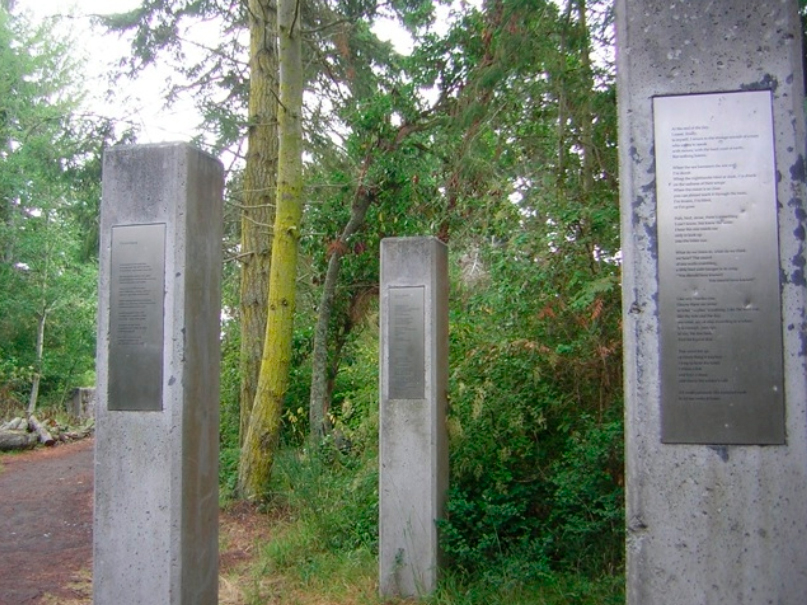
A Lover’s Quarrel
Voice and Piano
Also available for low voice and in a duet version for mezzo-soprano and tenor. Contact the composer.
The poems of Washington poet Sam Hamill (1943-2018) celebrate life in the Pacific Northwest: the forest, the flowers, and especially the seashore. Hamill is well-remembered for founding Poets against the War in response to the Iraq war.
Duration: 10 minutes. Click on the titles to listen to midi.
Read notes. Read poems. Download score.
Little flower cupping rain,
you are early this year
and my friend who planted you
is not here. Little gate
of pleasure dew with arms
upraised to the rain,
little red-lipped queen
or king of nothing but the rain,
detain your smile until
the hands that planted you
come home again. And then
smile wetly in the rain,
lips parted, through which
heaven's gate is seen.

The Mountain
Four Songs for High Voice and Piano
Poems of British-born Denise Levertov (1923-1997), inspired by the majestic mountains of her adopted Washington State.Composer’s Note: I first encountered the poetry of Denise Levertov during time spent in the Pacific Northwest. The mountain of which she writes made a very memorable impression each morning as I looked across Puget Sound at Mount Baker and Mount Rainier, very much as described in the poems.
Duration: approx. 8 minutes. Click on the titles to listen to midi.
Read notes and poems. Download the score.
I was welcomed here – clear gold
of late summer, of opening autumn,
the dawn eagle sunning himself on the highest tree,
the mountain revealing herself unclouded, her snow
tinted apricot as she looked west,
tolerant, in her steadfastness, of the restless sun
forever rising and setting. . . .
The mountain comes and goes
on the horizon . . . .
Today the mountain
is cloud . . . .
Perhaps one day I shall let myself
approach the mountain – . . . .
This mountain's power
lies in the open secret of its remote
apparition, silvery low-relief
coming and going moonlike at the horizon,
always loftier, lonelier, than I ever remember.

Nine Latin American Folk Songs
Arranged for Medium Low or Medium High Voice
Alfred Publishing Company
Medium high voice 22933; with CD 22935; Medium low voice 22936; with CD 22938Excellent teaching materials for the young singer. In Spanish and optional English with CD. For recitals, concerts and contests. English lyrics by Jason Charnesky.Alfred says: These nine Latin American gems will be a stunning addition to your vocal repertoire. Whether performed in Spanish or English, these masterful arrangements feature sophisticated piano accompaniments and stylish vocal lines that emphasize the dramatic nuances of their delightful texts.
2. ¿Dónde vas, Alfonso Doce? (Where DoYou Go, Alfonso XII?)
3. A cantar a una niña (When I Sang to a Child)
4. Mi mamá me aconsejaba (My Mama Advised Me)
5. Nesta rua (On Our Street)
6. Una tarde fesquita de Mayo (One Cool Afternoon in May)
7. El Capotín (A Little Rain Hat)
8. Al pasar por Sevilla (On Visiting Sevilla)
9. Villancico (Carol)
View score sample and listen at Alfred.
Appalachian Mining Songs
Pennsylvania Folksongs Arranged for Tenor or Baritone and Piano with Optional Harmonica
Click on the titles to listen to three with midi audio and two with the Penn State Glee Club (TTBB).
Download the score.
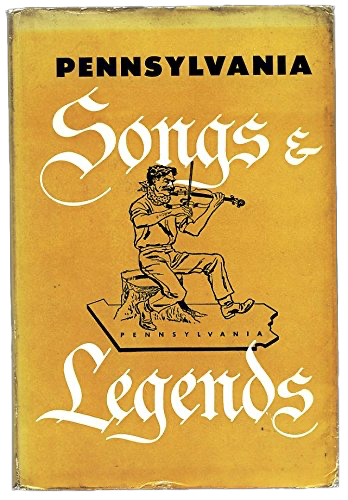
University of Pennsylvania Press 1949
A dramatic ballad about a fist fight in the mines, with the ever-increasing rhythmic drive in the accompaniment underlining the volatile emotions, until the mine boss arrives to break up the dispute.
2. Down in a Coal Mine
A stage song that was once the best-known mining song in the country. The hearty young miner jauntily sings of the tough life in the mines with a chorus that expresses deeper reflections.
3. The Shoofly
The old woman digging for coal expresses the anxiety and despair following the closing of the small mine in the valley. Normally the out-of-work miners might find jobs at the Shoofly, a nearby colliery, but there a bad seam had been struck, causing a shutdown. A bluesy waltz with piquant harmonies make for an especially dramatic piece about life in the mining towns, before and after the coal is gone.
4. Union Man
George Korson collected this song and says: This short ditty, sung with good humor by Albert Morgan in the Newkirk Tunnel Mine near Tamaqua, is an excellent example of the way the folk reflect in their songs the varied phases of their life. Better than an economist's report, the five stanzas are a satiric comment on rising wages and rising prices.
5. Blue Monday
The miners get paid on Saturday night and spend all their money on Sunday making for a Blue Monday.
Duration: 10 minutes
Union man! Union man!
He must have full dinner can!
AFL,CIO
Callin' strike, out she go!
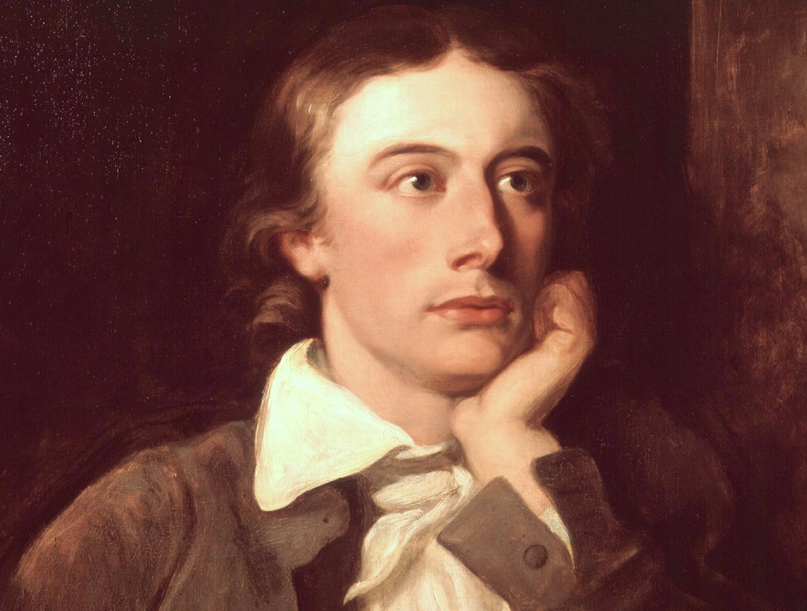
Songs for the Mermaid Tavern
Five Keats Settings for Voice and Piano
The poems by English Romantic poet John Keats (1795-1821) demonstrate the range of his poetic talent, from the musings on life and love of In Drear-nighted December and When I Have Fears to the magic and mystery in his feline friend; from the silly doggerel of Song About Myself, written for his sister, to the celebration of fellow poets in Lines on the Mermaid Tavern, a favorite drinking place from Elizabethan times to Keats’ for writers in London.
Click on the titles to listen to the midi audio.
2. Sonnet to a Cat
3. When I Have Fears
4. Song about Myself
5. Lines on the Mermaid Tavern
Duration: 10 minutes
Composed in 2009 during a residency at Manhattan Plaza, the home of artists on the West Side.
Read the notes and poems. Download the score.
Cat! who hast pass'd thy grand climacteric,
How many mice and rats hast in thy days
Destroy'd? - How many tit bits stolen? Gaze
With those bright languid segments green, and prick
Those velvet ears - but pr'ythee do not stick
Thy latent talons in me - and upraise
Thy gentle mew - and tell me all thy frays
Of fish and mice, and rats and tender chick.
Nay, look not down, nor lick thy dainty wrists -
For all the wheezy asthma, - and for all
Thy tail's tip is nick'd off - and though the fists
Of many a maid have given thee many a maul,
Still is that fur as soft as when the lists
In youth thou enter'dst on glass bottled wall.
From 5. Lines on the Mermaid Tavern
Souls of poets dead and gone,
What Elysium have ye known,
Happy field or mossy cavern,
Choicer than the Mermaid Tavern?
INTERLUDE VI: The Journey West
As a child I was fascinated by maps. I remember well the map of the United States that hung beside my bed from which I learned the names of the capitols of every state. So many places I had yet to see.
In childhood I traveled with my parents to visit relatives, journeying through Pennsylvania, visiting Washington D.C. and going as far south as Florida. Maybe it is from these early travels that I have come to derive so much inspiration from the experiences which a new place can give to an artist.
I remember seeing, and being intrigued by, something called “
The Natchez Trace” on my bedside map as a child. Forty-five years later I began a road trip to an artist colony out West by heading South. I had in mind a plan to travel the full length of the Natchez Trace from Nashville to Natchez. I had gotten a late start, so as dusk started to descend I pulled off the road to camp at the Meriwether Lewis Memorial, a lonely deserted site in southeastern Tennessee.
Exploring the grounds before setting up camp, I discovered that this was the site where the great American explorer Meriwether Lewis (1774-1809) had died, under pretty mysterious circumstances. I was surprised to learn that these events occurred just three years after the Lewis and Clark Expedition of 1804-1806. Little did I imagine that this chance encounter would result in a cantata, a full length opera, an international conference, and a theatre piece for children.
It is usually Jason who comes up with the “big idea,” but this one began with my puzzlement about Meriwether Lewis and his demise. It led to the writing of the cantata: The Last Voyage of Captain Meriwether Lewis . That in turn led to an opera about the only African-American on the Expedition, York, William Clark’s personal slave since childhood. York traveled as an equal with the men on the journey to the Pacific, but was never paid or rewarded for his work. This story developed into a full-length opera, YORK: The Voice of Freedom. The opera was the centerpiece of a major international conference, entitled The Unheard Voices that examined the influence of Lewis and Clark on the culture, history and ecology of the West. Lastly, when a friend asked us to write a piece for his opera students to tour to schools, we took another true story from the expedition to produce The Prairie Dog That Met the President.
Those three major works, their stories and genesis, can be explored on the Opera and Cantatas pages on Theatre Works. Extracts: a lullaby, an aria, a ballad, and a grand love duet appear on the Solo Songs page. And a set of five songs, extracted from the Cantata, have been fashioned into a dramatic song cycle, included below. I hope you will take the time to explore the entries. They are products of my “Journey West” - and are all tuneful, diverting and dramatic – and even educational. And will provide great material based on true-life history for your students and your own recitals.
Join me on this “Journey West.”

by Charles Willson Peale.
The Last Voyage of Captain Meriwether Lewis
Dramatic Song Cycle for High Baritone or Tenor and Piano.
Text by Jason Charnesky
Based on the Journals of Lewis and Clark.In the depths of despair, Lewis is suffering through his last night when he doubts that his exploits and life have meant anything. The ensuing three songs follow the explorer as he remembers the exciting days with the men of the Corps of Discovery, the beautiful never-ending Missouri River, and then the treacherous crossing of the forbidding Bitterroot Mountains. In the last song Lewis, in a grand operatic scena takes courage in his accomplishments and then departs this life heroically, knowing that he will be remembered as a great explorer and scientist.
Click on the movements below to listen to the original TTBB versions of the songs, which differ slightly from the scores to the solo songs. They are sung by Mark Whatley, baritone, Elisa Mathews, soprano, and the Penn State Glee Club with the Castalia Piano Trio with Tim Deighton, viola.
2. The Corps of Discovery View score. Listen.
3. A New Eden View score. Listen.
4. Bitterroot View score. Listen.
5. First Light View score. Listen.
Duration: 12 minutes
Read the notes. Download the full score.
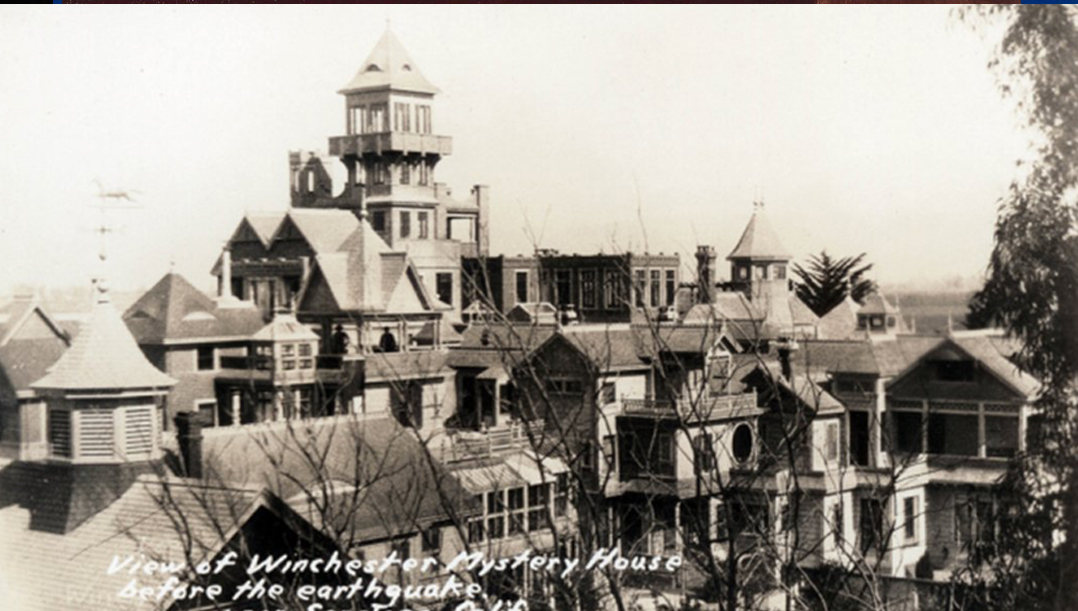
The Winchester Widow
Monodrama for Voice, Piano, Musical Saw (optional) and String Bass (optional)
Text by Jason Charnesky
Also available with Chamber Orchestra (Flute, Oboe, Clarinet, String Quartet and Musical Saw).
Based on the true story of Sarah Winchester (1836-1922) whose husband manufactured the rifle that won the West. She built a mansion of 160 rooms in San Jose, CA (The Winchester Mystery House) to keep the ghosts away. A haunting evocation of obsession progressing into madness.
Perfect for you or your student’s Halloween recital!
Duration: 25 minutes long
Commission and Premiere: Mary Kay McGarvey, soprano
Watch The Winchester Widow presented as Part 3 of Confess\Confuse with Elisa Mathews, soprano; Natalia Paruz, musical saw; and the composer at the piano.
Download piano-vocal score.
Seasons Inside-Outside for Mezzo-soprano, Alto Saxophone and Piano.
Written for the Odelya Trio for the AvantGarten Liedberg Festival in Liedberg, Germany
View full score.
1. Dinner in the Courtyard Poem by Emily Grosholz. View score. Listen to midi.
2. Vernal Sentiment Poem by Theodore Roethke (1908-1963) View score. Listen to midi.
3. Lovely October Poem by Joseph Grucci (1908-1982) View score. Listen to midi.
4. SUN (Milonga del Sol) Poem by Melinda Mucha View score. Listen to midi.